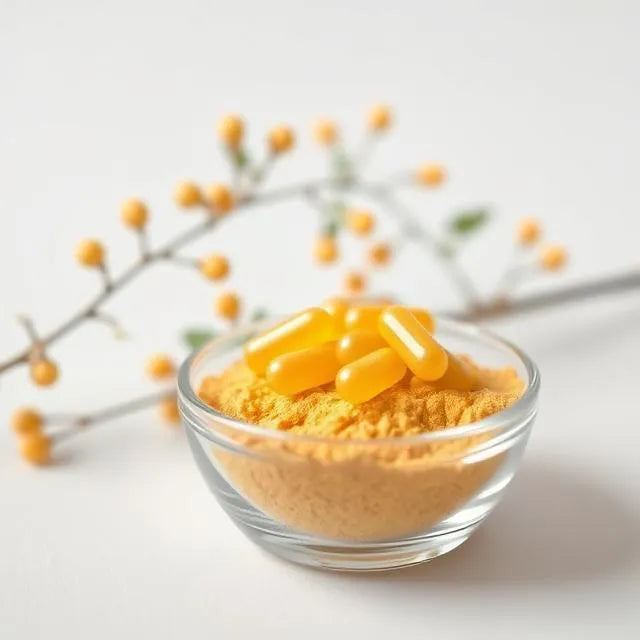
Berberine: Unlocking Nature’s Health Potential
Share
Berberine, a natural compound found in several plants, has long been celebrated in traditional medicine systems like Ayurveda and Chinese medicine. In recent years, it has captured the attention of modern science for its impressive range of health benefits, from regulating blood sugar to improving heart health and more. As we delve deeper into this powerful plant alkaloid, it becomes clear why Berberine is considered one of the most effective natural supplements for improving overall health.
What is Berberine?
Berberine is a bright yellow alkaloid extracted from plants such as Berberis shrubs. Historically, it was used as a remedy for digestive issues and infections. Today, researchers are uncovering its potential as a versatile health supplement capable of addressing multiple concerns.
Berberine’s power lies in its ability to activate an enzyme called AMPK (adenosine monophosphate-activated protein kinase), often referred to as the body’s “metabolic master switch.” This enzyme is essential for energy regulation and is involved in processes like glucose metabolism, fat storage, and cellular repair.
The Multifaceted Benefits of Berberine
One of Berberine’s most studied benefits is its role in managing blood sugar levels. It improves insulin sensitivity and reduces the liver’s glucose production, helping to regulate blood sugar effectively. This has made it particularly popular among individuals managing type 2 diabetes or prediabetes.
Berberine is also linked to improved cardiovascular health. Studies have shown it can lower LDL (bad) cholesterol and triglycerides while increasing HDL (good) cholesterol. Its ability to reduce inflammation further supports heart health by protecting blood vessels and promoting better circulation.
Another noteworthy benefit is its impact on metabolism and weight management. By enhancing the body’s ability to process fats and sugars, Berberine supports healthy weight loss and helps combat obesity-related issues.
Additionally, Berberine has antimicrobial properties, making it effective against harmful bacteria, fungi, and parasites. This has implications for improving gut health and supporting a balanced microbiome, which is crucial for overall well-being.
How to Use Berberine
Berberine is typically consumed as a supplement, often in capsule form. A common dosage recommendation is 500 mg taken two to three times daily before meals. This timing helps optimize its effects on blood sugar levels and digestion.
Because Berberine is highly potent, consistency is key to achieving noticeable results. While some people experience benefits within a few weeks, others may require longer to see significant improvements. It’s also important to consult with a healthcare provider before starting Berberine, especially if you’re taking medications for blood sugar, cholesterol, or blood pressure.
Why Berberine is Gaining Popularity
The increasing interest in Berberine stems from its ability to address multiple health concerns with one natural compound. Unlike synthetic medications that often target a single issue, Berberine offers a holistic approach to wellness, supporting everything from metabolic health to immunity.
Its natural origin and extensive research backing make it an appealing option for those seeking alternatives to pharmaceuticals. However, not all Berberine supplements are created equal. Choosing a high-quality product, free from additives and sourced from trusted suppliers, ensures you’re getting the most out of this remarkable compound.
Berberine and Modern Living
In today’s fast-paced world, where poor diet and stress often disrupt our health, Berberine provides a natural way to restore balance. Whether you’re looking to manage blood sugar levels, support heart health, or improve gut function, this ancient remedy offers a science-backed solution to modern health challenges.

